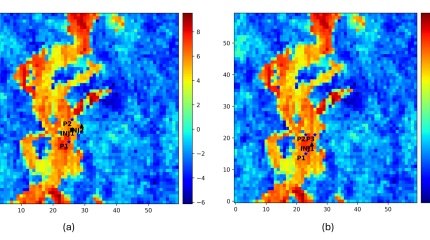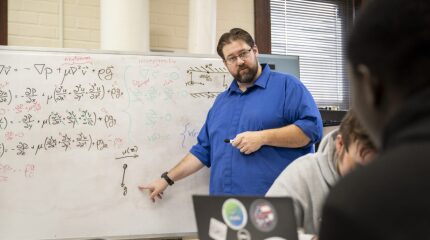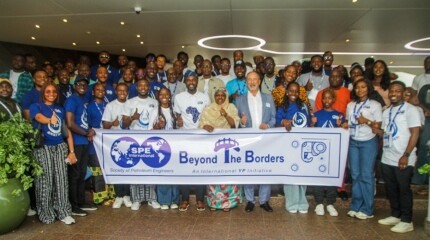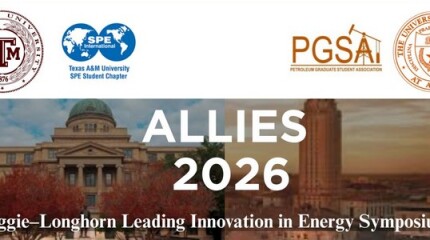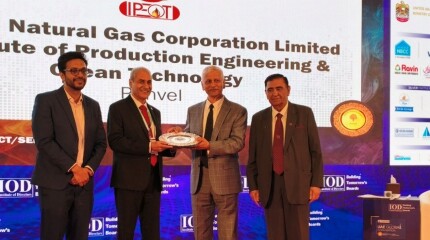Young Professionals News
-
The university's new undergraduate program in natural gas, renewables, and oil engineering will train students in both traditional oil and gas cirricula and renewable energy.
-
The program will train more than 1,200 workers across Canada for careers in carbon capture, utilization, and storage.
-
Learn how scalable modeling methods help turn the complex design of CO₂ storage systems into practical solutions.
-
With the right governance, CCS funding can be a strategic tool to decarbonize hard-to-abate sectors, safeguard jobs, and help meet net-zero goals.
-
SPE members can stream new SPE Live episodes at no cost beginning in October to earn Continuing Education Credits (CEU) and Professional Development Hour (PDH) credits.
-
Geothermal energy currently supplies less than 1% of US power but could reach approximately 10% with enhanced systems if well integrity challenges are solved, positioning it as a key player in a net-zero 2050 grid.
-
Kyle Haustveit, SPE, as been confirmed as the 16th Assistant Secretary for the US Department of Energy’s Office of Fossil Energy.
-
In the real world, where data is messy and workflows are rarely linear, automation often fails. That's where agentic AI comes in.
-
The program, lasting 21 months, delivered in partnership with Serviço Nacional de Aprendizagem Industrial, will offer professional training in fields including petrochemicals and renewable energy systems.
-
The universities are forming a national hub focused on advancing safe and reliable subsurface storage of energy-related fluids.
-
Ganesh Thakur and George K. Wong will study deepwater Gulf of Mexico reservoirs to advance reservoir simulation and statistical analysis to evaluate production strategies, compare reservoir parameters, and improve recovery estimates.
-
The curriculum covers topics such as geochemical and technological removal methods, life cycle assessments, and storage solutions.
-
The semi-pilot system uses custom membranes and catalysts to release hydrogen from liquid organic hydrogen carriers at low temperatures, reducing energy use and costs compared with current high-temperature methods.
-
Founding dean of Missouri S&T’s Kummer College, James D. Sterling, sat down with Joshua Schlegel, associate professor and associate chair of nuclear engineering and radiation science, to discuss why nuclear power is making a comeback and what its resurgence means for the future of energy.
-
SPE Africa's first Beyond the Borders program, held during the 2025 Nigeria Annual International Conference and Exhibition in Lagos, brought together young professionals from seven African countries to foster collaboration, leadership, and professional growth.
-
The free, 1-day symposium will bring together graduate students, faculty, and industry leaders dedicated to advancing research, career growth, and energy innovation.
-
For young professionals, natural hydrogen presents unique opportunities to shape an early-stage industry and contribute to the broader energy transition.
-
The SPE Spain Section visited with 2026 SPE President Jennifer Miskimins to engage in a direct, thoughtful dialogue about the section's current challenges, goals, and the path forward as a small SPE community in Europe.
-
Yurii Moroz, SPE, reflects on his career journey from field operations to leading new energy project management including hydrogen, geothermal, CRM, and CCS projects at Ukraine’s largest state-owned gas company.
-
Led by OSU's Prem Bikkina, SPE, the research focuses on compiling and analyzing geological and geochemical data to estimate white hydrogen availability in Oklahoma and surrounding states.
-
This article outlines observations regarding P&A design and analyzes what can be done better to strengthen safety, reliability, and sustainability.
-
Emuobosa Patience Ojoboh, SPE, shares how unexpected academic challenges changed her career path and how, throughout it all, SPE served as her anchor through uncertainty.
-
Rajiv Nischal, head of ONGC’s Institute of Production Engineering and Ocean Technology (IPEOT), shares the company's latest developments in technology, sustainability, safety, and more.
-
In this interview, Purohit explains why ultrasonic technology is rising as a dominant solution for gas-flow applications and how engineering teams can approach measurement as a tool not just for accountability but also for operational excellence.
-
With a record-breaking number of participants, this year's datathon proved that collaboration is the catalyst, data is the tool, and innovation is the outcome.
-
David Nnamdi, SPE, speaks about his work as a data scientist and engineer, his development of Sequestrix, an open-source CO2 transport network optimization tool, and where he sees data science and AI’s role in the future of sustainable energy.
-
Three Namibian engineering graduates have been awarded fully funded scholarships worth more than $40,000 to attend a specialized ROV pilot technician training program at the Netherlands Maritime University College in Malaysia. After completion of the training, Subsea7 will provide the graduates with on-the-job training, integrate them into its global offshore workforc…
-
In industries like oil and gas, where technical expertise intersects with complex organizational structures, the transition from student to employee can feel especially daunting. But it’s also a powerful opportunity to lay the foundation for a meaningful and resilient career.
-
AI is beginning to transform well management by helping engineers predict electrical submersible pump failures before they happen, optimize drawdown more efficiently, and generate reliable forecasts even when data is scarce or noisy.
-
UT-Austin's Matthew Balhoff, SPE, shares his advice to students and young professionals in the industry to help maximize their academic experience and early careers.



